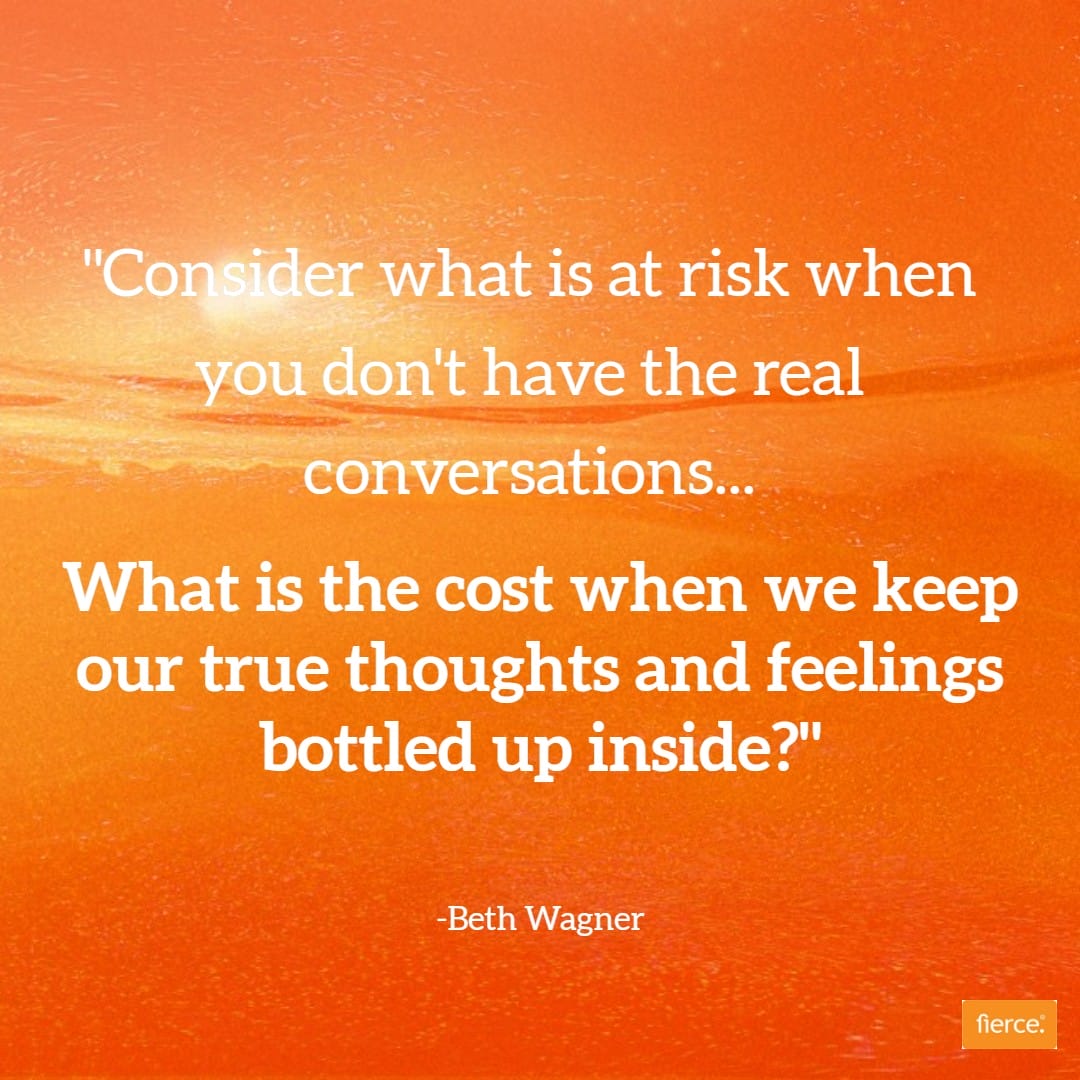
When I was growing up, there was a common saying in our house (at least among the kids) “Who-dee did it!” Now, don’t ask me where the name “who-dee” came from, perhaps it morphed from the phrase “not me,” but at that time, Who-dee was a legit member of our family…most specifically when someone did something wrong, and it came time to own up.
Whenever Mom or Dad asked, “who did it?” we would all turn our palms to the sky, cock our heads and say, “I dunno…must have been ‘Who-dee.’” Poor Who-dee always got blamed for everything.
Fast forward to today, and it seems not much has changed. I have seen entire organizational cultures built around “Who-dee.” “Whose fault is it?” “I dunno…not mine! Go speak to X department or Y leader.”
I hear this from my clients frequently — while employees want the responsibility, leaders say those employees are quick to pass judgment or blame when they don’t get the results they want. No one is taking ownership. And yet, from the many years I’ve been in the field of leadership development, I’ve also heard employees argue the same about leadership.
“THEY aren’t leading us to success. THEY are the problem.” Pointing the blame “up.” It appears we have an epidemic of finger-pointing happening in the workplace with no real solutions or results being produced. Conversations that should be happening in the meeting room are happening anywhere but, and team performance is suffering as a result.
While organizations continue to reach for new ways to evolve and stay relevant, teams and their leaders are left struggling to maintain true accountability — the “Who-dees” of the world are multiplying.
In this highly competitive, ever-changing business climate, accountability continues to be a critical challenge for leaders and organizations alike.
WHAT’S GOING ON?
Let’s talk about the word “accountability” for a moment. Have you ever noticed that the word “accountability” is rarely if ever, used in conversations about success? You never hear “who is accountable for this?” when something goes really well.
These days, the word accountability is more synonymous with blame, culpability, and wrong-doing. The high majority of us attach accountability to “fault.” I don’t know about you, but this isn’t a great approach to get me to jump out of bed and rush into work every day. This doesn’t compel me to raise my hand high and say, “Oooh, me! I want to be culpable, I want to be blamed. Sign me up for that project!”
I mean, it makes sense, doesn’t it? When culturally, we find ourselves constantly linking accountability to fault, blame, or even failure rather than something positive, it seems rational that we would want to run for the hills.
Consider the environment where you work. Are people admitting their mistakes willingly, owning up when things don’t go right or are they calling on “who dee,” pointing fingers at everyone but themselves? Are leaders and employees alike confronting issues as they arise, or are they throwing pity parties and repeating phrases such as, “It’s not my fault, it’s not my problem, let them figure it out.”
If you live in a culture of who-dees, pity parties, and finger-pointing, you’ll know. Trust me. Living like this can be incredibly exhausting, for employees and their leaders.
We’ve all grown very tired of the blame game, tired of watching team members shirk responsibility, sidestep the tough conversations, or make excuses for why they aren’t getting the results they want.
So, how can we learn to embrace accountability and encourage employees to do the same?

1. Be more self-aware.
According to Daniel Goleman, an internationally renowned psychologist, “self-awareness is the key cornerstone to emotional intelligence, the ability to monitor our emotions and thoughts from moment to moment is key to understanding ourselves better and proactively managing our thoughts, emotions, and behaviors.”
Self-aware people tend to act consciously rather than react passively, and they are more inclined to show up in an accountable way, modeling the behavior they want to see from others.
How do you become more self-aware at your organization? By reflecting.
There have been many studies done regarding the critical component that “reflection” plays in performance and learning.
According to behavioral scientist and Harvard Professor Francesca Gino, individuals who take time out to reflect on their successes and their mistakes perform 20 to 25 percent better than those who do not. The reflective leader acknowledges their performance (good or bad) learns from it and is willing to show up differently next time. They are modeling accountability.
If you have never actively reflected on your own behavior/impact, here are a few powerful questions to get you started (make a practice of setting aside 10 to 15 minutes each week to consider your actions and your impact on others):
- What excuses did I make this week (in my head or out loud) for mistakes or bad results? What impact does this have on my team and our success?
- What do my actions/reactions tell me about myself? What patterns do I see? What impact do these patterns have on my performance and the performance of my team?
- How do I want my team/clients/coworkers to experience me? What do I need to do or say differently to ensure this is the case?
You are always modeling something, the question is, what are you modeling?
2. Take responsibility for your impact on others.
You know, most of us will do anything to avoid being wrong – and often times we’ll do even more to PROVE we are right! But, what if our need to be right is what is really wrong?
I watched a wonderful Ted talk the other day and the speaker asked, “how does it feel to realize you are wrong?” She got answers like “embarrassing, devastating, excruciating” …who wants that? We would logically try to avoid situations where we feel embarrassed or devastated or pained in some way. And this got me thinking…perhaps this woman should be asking a different question.
While it may be uncomfortable to realize you are wrong or have made a mistake, the bigger question we should be asking ourselves is, “What is the cost when we are wrong and don’t acknowledge it or own up? What price do we and those around us pay?”
There is one very powerful way to take responsibility and own up to the impact we have when things go wrong – apologize.
You were likely taught this when you were the ripe old age of 2 or 3. It is one of the earliest lessons we receive as children. Say “I’m sorry” when you hurt someone or make a mistake.
And yet, have you ever noticed that “I’m sorry” seems to be the hardest two words for some people to muster? What if all the leaders in the world (including you and me) apologized every time we realized something we had done harmed someone or failed to accomplish what we said we would, even if it wasn’t intentional, which often times it isn’t, instead of blaming the “who-dees?” Wouldn’t that be refreshing?
3. Make the conversation REAL.
I have a vivid memory of my first assignment at my first real corporate job. I was an admin for an HR team at a large retailer. The first week I started, I was asked to lead all of the planning for the annual three-day leadership retreat. And I’ll never forget my boss’s words: “I am making YOU accountable for this. If anything goes wrong, it’s on your shoulders. So, don’t screw it up, okay?”
I remember thinking to myself, “Really? It’s all on me? What happens if I do screw up? I mean, I’ll really try not to screw up, I don’t want to screw up, but if I do screw up you should really blame yourself for thinking I should and could be responsible for all of this. You are putting too much pressure and responsibility on me as a new hire. This is unfair.”
This was the conversation I was having in my head. I was in full-on “victim mode.” I was pointing blame at my boss before I even had anything to blame him for! Meanwhile, the words out of my mouth were something like, “You bet! You can count on me!!”
I was masking my true feelings and I had barely set foot in this new company. Just underneath that brave face lurked uncertainty, doubt, and fear. Those three little words, “you are accountable,” did not motivate me…on the contrary, they left me drowning in an angry sea of resentment.
Have you ever found yourself in a similar position? Do you ever catch yourself saying something you don’t mean just to be polite, to please someone, or to get out of an uncomfortable situation? And then feel worse because of it?
At one time or another, most of us have projected certain images that we think others want of us. In other words, we say what we think people want to hear, vs what we think needs to be said. We’ve been doing it since we were old enough to know that our behavior can please or it can disappoint, it can bring praise or disapproval.
In order to have the lives we want, we need to show up as ourselves, to speak our truths, and that takes courage.
Think about it. Saying, “I’m dissatisfied,” “I don’t think I’m ready for this,” or “I don’t agree with you,” can feel very risky. And yet, to be real requires that we SHOW UP. 
It may seem easier or safer to project the images we think others expect of us – to be or say what others expect. Yet, what is the cost when we keep our true thoughts and feelings bottled up inside?
I want you to consider what is at risk when you don’t have the real conversations. What happens when you tiptoe around the issue, or never bring it up for fear of someone’s response or critique? There can be a heavy price attached.
So, here is my call to action for you: What conversations have your name on them? And/or, in what ways can you shift the conversations you are currently having with yourself and others to get the results you want?
Remember, true accountability is a choice. Ditch the Who-dees and choose to engage in the conversations critical to your success.

Conversation Chaos in the Digital Age
Why feedback is the key to successful remote working in the digital age.
Tags: #Cultural Change, #Unreliability





